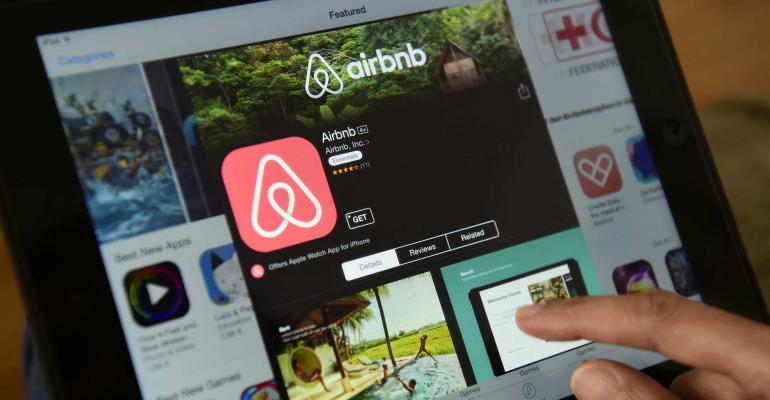Vacation rental site Airbnb, which has filed paperwork with the Securities & Exchange Commission for its IPO in mid-August, is recovering from pandemic-related setbacks much quicker than the traditional hospitality sector and appears to be better positioned to capture the leisure travel market in the foreseeable future. That dynamic is being driven by increased demand for suburban rentals.
Airbnb initially planned to file for IPO in March of this year, but the global spread of COVID-19 derailed those plans as travel demand plummeted along with its revenues. In April, the company had to fundraise $2 billion in debt to shore up its balance sheet.
Since then, however, Airbnb has been able to bounce back much better than traditional hotels, in part because its business model allows it far greater flexibility in the offering of properties for stay.
Though its urban rental revenues declined in the past six months, Airbnb’s suburban rental revenues have increased since the pandemic has upended travel in the spring. Suburban and rural rental revenues have “massively outperformed” urban rentals, says Steven Jankowski, head of growth at AllTheRooms, a provider of data and analytics on short-term rentals and Airbnb. With many people avoiding plane travel and preferring to avoid crowded cities and venturing too far from home, hosts in rural areas of the U.S. earned more than $200 million in June 2020, an increase of more than 25 percent from the same period a year ago, according to Airbnb. According to the company, more than $9 out of every $10 earned by its hosts in June was attributed to properties located outside the 10 most populated U.S. cities.
In addition, since March 11, 200,000 new hosts have rented their properties through Airbnb globally, the company reports. As an example, in resort towns on the Jersey Shore in New Jersey, within a few hours’ driving distance of New York City, new hosts earned a total of more than $3.3 million from mid-March through the end of August.
Those trends are expected to continue for some time, says Jankowski. Short-term rental bookings made for future dates still show rural areas doing much better than urban one.
“COVID-19 has massively handicapped the short-term stays in urban environments, which was a big part of Airbnb’s business,” says Zach Aarons, co-founder and general partner at Metaprop, a New York-based venture capital firm focused on the real estate technology industry. “But the other part of Airbnb’s business, which is more longer term stays in more suburban and rural settings has expanded to sort of offset that.”
On the flip side, traditional hotels have been devastated by the pandemic because they typically rely on business and event travel as significant revenue drivers and both those revenue sources came virtually to a halt in recent months. Companies and event organizers continue to face huge liability risks if they ask their employees to travel in the midst of a pandemic and so have been opting for online events and teleconferencing instead of in-person events, says Jankowski.
Hotels do get a big portion of their money from leisure travel, but business travel stays tend to pay the highest room rates and represent the largest component of hotel room demand, says Steve Boyd, senior director at Fitch Ratings. As a result, “it’s going to be a slow crawl back to normalcy” for traditional hotels, says Laura Wolinsky, director at Kroll Bond Rating Agency. The lodging sector continues to record the highest loan delinquency and specially serviced rate among all property types, at 25.2 percent, according to a Kroll Bond Rating Agency report on CMBS loan performance.
What Airbnb has been able to do, on the other hand, was quickly pivot to a long-term stay model and attract more hosts in rural and suburban areas that are currently most in demand, as well as enhance its offerings with virtual experiences through its website, says Aarons. “None of their competitors in lodging are doing [this.]”





